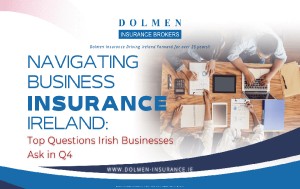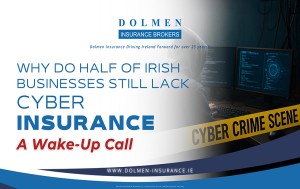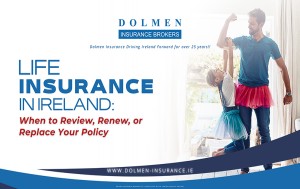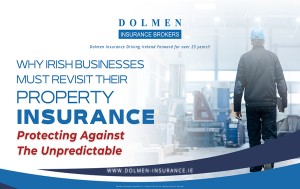
In the ever-evolving Irish business landscape, the responsibilities of directors and officers continue to grow in complexity. Regulatory scrutiny has increased, stakeholders demand transparency, and the margin for error has narrowed significantly. Whether in a family-run SME or a listed company, the burden of leadership brings with it significant risk. Directors and officers can be held personally liable for decisions made during the course of their duties. In this environment, Directors and Officers (D&O) Insurance serves not as a luxury but as an essential protective tool. Without it, business leaders risk personal financial loss, reputational damage, and prolonged legal entanglements. This blog explores the importance of D&O Insurance in Ireland, the key benefits it offers, how to choose the right policy, and proactive steps business leaders can take to protect themselves.
Importance of Directors & Officers Insurance
In Ireland, company directors and senior officers are expected to act in good faith and in the best interests of their organisations. However, despite the best of intentions, decisions can be called into question, especially when outcomes negatively impact shareholders, employees, or regulators. Claims against directors may arise from allegations of negligence, breach of duty, or regulatory non-compliance. Even if unfounded, these claims must be defended, often at great personal expense.
Irish law does not allow companies to indemnify directors for all legal liabilities, especially those involving regulatory breaches or shareholder actions. This legal limitation underscores the necessity of separate D&O cover. Moreover, with legislative frameworks like the Companies Act 2014 and increasing enforcement from bodies such as the Central Bank of Ireland, the personal accountability of directors has become more pronounced. The rise of environmental, social, and governance (ESG) standards also adds new dimensions of risk. Directors must now consider climate disclosures, data protection practices, and ethical governance, all of which can become grounds for investigation.
Small and medium-sized enterprises (SMEs) are not immune. While large public companies tend to be more visible, SMEs also face growing exposure, especially as regulatory and consumer expectations grow. Furthermore, voluntary and non-profit boards face the same statutory obligations as corporate boards, making D&O cover relevant across nearly all sectors.
Benefits of Directors & Officers Insurance
Directors & Officers Insurance provides several layers of protection. At its core, it ensures that the personal assets of directors and officers are not jeopardised by legal action. It typically covers defence costs, legal representation, settlements, and compensation awards arising from covered claims. This type of cover provides peace of mind, allowing business leaders to focus on their strategic responsibilities without fear of personal ruin.
An often-overlooked advantage is the support D&O Insurance gives in attracting and retaining senior talent. Highly qualified executives are less likely to accept leadership roles without the reassurance of comprehensive D&O cover. It communicates that the company values good governance and is prepared to support its leaders when needed. This, in turn, improves organisational resilience and corporate reputation.
Another significant benefit is that a D&O policy may extend coverage to the company itself in the event of securities claims or employment practice disputes. This broader coverage is especially relevant for businesses engaged in fundraising, public offerings, or mergers and acquisitions. It reduces financial strain on the business while maintaining operational stability.
Additionally, the right policy can include what is known as “run-off” cover, which protects directors even after they have left the company. Claims can arise months or years after a director’s tenure has ended. A well-structured policy ensures that past decisions do not haunt business leaders long after their roles have changed.
How to Choose the Right Directors & Officers Insurance
Choosing the right D&O policy requires more than a basic understanding of insurance. It demands a tailored approach that considers the size, structure, and sector of the business. First, it is essential to assess your organisation’s risk exposure. Factors such as regulatory compliance obligations, financial practices, employee relations, and past litigation history all influence the kind of coverage required. A comprehensive risk assessment can clarify which policy features are necessary.
Next, attention must be paid to the policy limits and scope of coverage. Ensure the policy provides adequate limits per claim and in aggregate across the policy term. Higher limits are generally advisable for organisations with significant investor involvement or international operations. Pay close attention to exclusions and conditions. Some policies exclude certain types of claims, such as those arising from fraudulent behaviour, intentional wrongdoing, or conflicts between insured parties. However, reputable insurers often offer carve-outs or endorsements to address these gaps.
Along with policy structure, the choice of insurer matters. Work with an experienced broker who understands the nuances of the Irish business and legal environment. At Dolmen Insurance, our experts can advise on industry trends, negotiate competitive premiums, and provide access to insurers with a strong claims-handling reputation. Insurers with local expertise are better equipped to interpret Irish regulations and respond to evolving legal precedents.
Finally, review the policy annually or when there are significant changes to the business. Mergers, acquisitions, board appointments, or changes in corporate strategy can alter the risk profile, necessitating updated coverage. Regular policy reviews ensure that coverage remains relevant and sufficient.
Tips for Business Leaders
While insurance provides essential protection, business leaders should also adopt best practices to minimise risk and strengthen their legal standing. Start by documenting all major board decisions. Proper minutes, evidence of deliberation, and expert consultations provide crucial context in the event of a claim. Establish clear reporting lines and governance protocols. Clarity in decision-making processes can serve as a strong defence if challenges arise.
Education is equally important. Directors must stay informed about their responsibilities under Irish law. Training sessions, legal briefings, and compliance workshops can help leaders understand the implications of their decisions. Encourage a culture of accountability and transparency. These values foster ethical decision-making and reduce the risk of oversight or misjudgement.
Regular internal audits and compliance reviews also enhance governance. They identify potential issues before they escalate. An effective whistleblowing policy encourages employees to report irregularities, providing an early warning system for the board. Protecting whistleblowers from retaliation also signals a company’s commitment to integrity.
Communication with stakeholders should be timely and accurate. Misleading statements or delayed disclosures can become grounds for litigation. Directors should ensure that financial and operational reports reflect a true and fair view of the business. Establishing strong internal controls around data management, especially regarding GDPR, further strengthens compliance.
Moreover, ensure that personal indemnity agreements are in place and consistent with the Articles of Association. These agreements should not replace insurance but act in tandem to reinforce protection. Directors should also understand the limitations of corporate indemnity, particularly in the face of insolvency or statutory exclusions.
Lastly, foster a collaborative relationship with your insurance broker. Keep them informed about changes in the business, upcoming projects, or any incidents that could evolve into claims. A proactive approach allows brokers to advocate more effectively on your behalf and ensure your policy evolves with your needs.
What to do next
Directors & Officers Insurance is a fundamental element of modern corporate governance in Ireland. As accountability pressures grow and legal complexities deepen, the risk to business leaders cannot be understated. From SMEs to large enterprises, all boards benefit from comprehensive D&O cover. The right policy does more than shield against legal costs, it supports strong governance, attracts top-tier leadership, and ensures business continuity. Choosing appropriate coverage requires understanding your risk, selecting experienced partners, and committing to ongoing policy review. At Dolmen Insurance, we specialise in helping Irish businesses craft tailored D&O solutions that offer real protection when it matters most. Business leaders can lead with greater confidence, knowing they are backed by robust insurance and sound risk management.
Talk to our business insurance team today, click here.
Disclaimer: The information provided in this blog post is for general informational purposes only and does not constitute professional advice. While Dolmen Insurance strives to keep the content accurate and up to date, insurance policies and legal regulations may change over time and vary by individual circumstances. Readers should consult a qualified insurance broker or legal professional before making decisions about Directors & Officers Insurance or any other insurance products. Dolmen Insurance accepts no liability for any loss or damage arising from reliance on the information contained herein.






